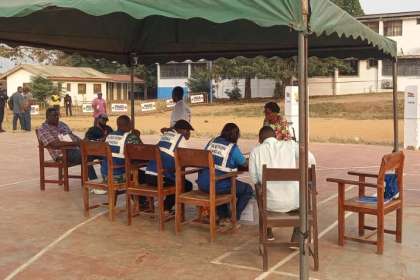The Pharmaceutical Society of Ghana (PSGH) has called on government to accelerate the integration of community pharmacies into the national primary healthcare system as part of measures to strengthen access to health services.
The call was in resolutions signed by Dr Paul Owusu Donkor, President PSGH, and adopted at the Society’s 2025 Annual General Meeting (AGM) held from September 22 to 27 at the University of Cape Coast, which coincided with the commemoration of World Pharmacists’ Day.
The AGM reached consensus with the Ministry of Health, the National Health Insurance Authority
(NHIA), the World Health Organization (WHO) and other partners that community pharmacies must be formally integrated into the primary healthcare strategy.
The Society said a “Pharmacy First” policy would position pharmacies as the first point of care for minor ailments, preventive services, and non-communicable disease management, while also supporting public health data reporting.
It urged government to establish contractual arrangements with the NHIA to reimburse pharmacy-based primary care services.
According to PSGH, this would free up hospitals to focus on specialized care, reduce costs for the NHIA and accelerate Ghana’s progress toward universal health coverage.
The Society expressed concern about the shortage of pharmacists in the public sector, warning that it undermined patient safety and increased the risk of medication errors.
It called on government to fulfill the Minister of Health’s July 2025 pledge to recruit 1,621 qualified pharmacists awaiting permanent employment, ensure competitive conditions of service, and address delays in financial clearance for pharmacist house officers.
The AGM also resolved that illegal small-scale mining (galamsey) should be declared a national public health emergency.
It noted that galamsey contaminated water sources used for medicine production, destroyed agricultural ecosystems and threatened local pharmaceutical manufacturing.
The Society urged government to implement strong enforcement measures, launch environmental remediation programmes, and mobilise communities to protect public health and safeguard the future of local medicine production.
Delegates further called on government to leverage the proposed 24-hour economy policy to expand local pharmaceutical manufacturing.
They said targeted incentives, reliable utilities and enabling infrastructure were needed to strengthen production capacity, reduce import dependency and ensure sustainable medicine supply.
On professional identity, the PSGH officially adopted “Dr. (Pharm)” as the designation for pharmacists holding the Doctor of Pharmacy (PharmD) degree, while maintaining “Pharm.” for those without the qualification.
The Society said the decision would promote clarity, prevent confusion, and enhance recognition of pharmacists’ qualifications.
The Society reaffirmed its commitment to advancing universal pharmaceutical care as the cornerstone of primary healthcare in Ghana, pledging to collaborate with government and development partners to expand access to essential services and strengthen the health system.
GNA





